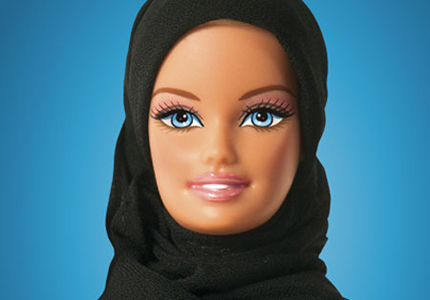
Hijabi Barbie - Growing up Muslim in a world of body image
Issue 66 March 2010
(This article was first published in Issue 66, March 2010)
Sarah Joseph introduces a series of articles examining the rise of body image issues and shows that Muslim women are not immune.
I was brought up in a model agency. Surrounded by the likes of Naomi Campbell and Sadie Frost, I was all fashioned-out by the age of eight. I immersed myself in discussions of politics and faith; far away from the fashion shows and fashion shoots which I witnessed. Embracing Islam at 16 made sense to me from a theological perspective. Taking on the hijab made sense for a whole host of other reasons. The hijab for me was the antithesis of the beauty fascism that had surrounded me since birth. The hijab represented not just a religious injunction, but a weapon in the war against an industry that demanded women reach unattainable goals of beauty and weight. The hijab was the Muslim equivalent of burning the bra and cutting off the hair.
In 1988 the hijab was rarely seen in the UK, but it was beginning to be worn. The reasons for donning it were varied. In addition to the calling of faith, it stood as a mark of substance over form. For some, it was a search for simplicity; for others a mark of identity. Today it is ubiquitous on the streets of Europe; and indeed in France women have fought to wear it.
Over this time period the extreme demands of body image have also increased, for women and men. The rise and rise of the super-models, and the decrease in dress size expectations have added to the atmosphere of bodily dissatisfaction. As Nigel says in The Devil Wears Prada, “size 6 is the new size 14,” and the main character Andy earns Nigel’s respect only when she reaches size 4.
Muslims are not immune to all this. The malls of the Arab world are awash with the latest fashions. I have stood stunned in women-only banks as female customers have removed their abayas and scarves to reveal designer clothing complete with belly-button piercings and accompanying jewellery. Iran has become the ‘nose job’ capital of the world. Incidents of anorexia amongst Muslim girls are on the rise.
Can we lay all of this at the door of the Western world? What role do cultures play in the insecurities of women with the demand for tall, thin, fair brides? How do we help our children, particularly our daughters, to feel confident about their own body images? How can we help them resist the global search for body perfection? How can we stop Muslim women turning into little more than Hijabi Barbies?
All Dolled Up
Only 1 in 100,000 women could attain Barbie’s vital statistics. With 1 in 100 women between 15 and 30 suffering from anorexia, Aisha Mirza, explores how the doll fits into the beauty myth.
This Little Dolly Went to Market
The $75billion global toy market means that toys are not merely child’s play. Sarah Joseph examines the new dolls on the block who are eyeing up their share of the global Muslim market.
Paying Through the Nose
Iran has the highest amount of ‘nose jobs’ per capita.Tahereh Hadian meets with women who have put their noses under the knife.
Bookmark this |
|
Add to DIGG |
|
Add to del.icio.us |
|
Stumble this |
|
Share on Facebook |
|
Share this |
|
Send to a Friend |
|
Link to this |
|
Printer Friendly |
|
Print in plain text |
|

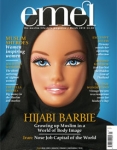
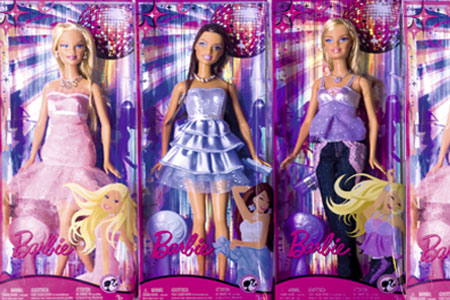
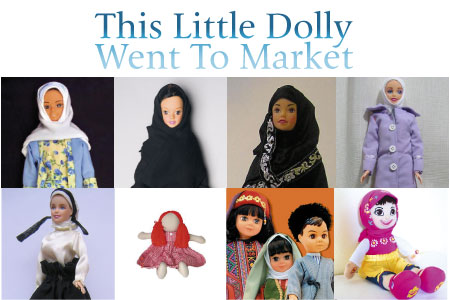
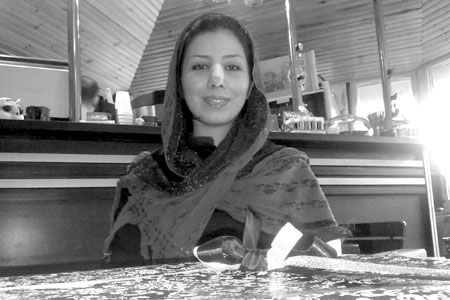
Comments
2 Comments
1
1R4M
8 Mar 11, 19:06
Why do dolls need to wear a hijab
no girl looks at her dolls and wished she looked like her doll
dolls arent even meant to be ralistic
why isnt anyone criticising the action man figures???
Also
what's wrong with women wearing designer clothes unde their abayas
what they choose to wear is their business
However
I agree that nowadays, lookingperfet is a main concern for women
given the nature of media and the bombardment of imagery
2
Safiyyah
19 May 10, 19:43
Aa, just wanted to point out to any readers who
weren't already aware-American sizing is two smaller
than in the UK. So an American 6 is a UK 10, 14 being
an 18 and therefore the American size 0 is a UK 4.